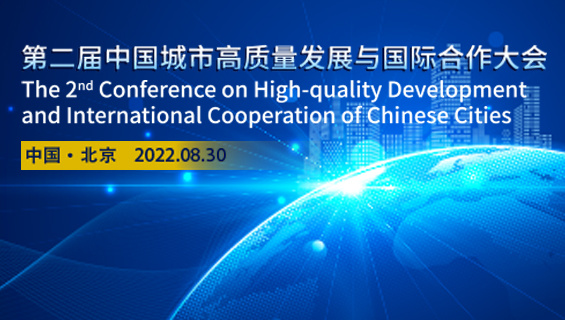2012年5月环球企业领袖圆桌会周年酒会在北京举行,环球时报英文报对本次会议做了独家报道:
By Chris Dalby
On Thursday evening, a group of executives and media personalities enjoyed a vigorous debate on the impact that State reforms would have on the businesshopes of multinational companies (MNCs) in China.The topics under discussion ranged from potential stagnation ahead of the 18th National Congress of the CPC to how MNCs themselves need to adapt to stay competitive. The 2nd anniversary of the GlobalTimes Leader RoundTable adopted the theme of “Reform in China – An Opportunity or a Threat to MNCs?” Moderator John Russell, managing director of North Head, set the tone early for the debate by saying that despite international concerns about China’s growing clout, it remains absolutely vital for global firms. Russell explained that 97 percent of European firms operating abroad view China
as a priority market but that apprehension remains at the way reforms implemented by the central government might affect business hopes. As China’s domestic business environment modernizes, Russell pointed out that more levels of government were coming into the mix.
MNCs feeling the squeeze
Li Hongwei, managing editor of the Global Times, noted that the executives around the table, across many industries, viewed these issues as being of common concerns before Russell began a poll on attendees’ short-term optimism for business growth.
Cyrus Ma, vice president of SGSCSTC and a familiar face at past RoundTables, struck a somber note, saying that it was difficult for MNCs to be optimistic at this time. Ma recognized that reform was coming but he felt the subsequent net growth in investment would be tilted in favor of State-owned enterprises, leaving MNCs without a share of the pie. Frank Xiong, vice president of software development at Oracle, answered that it was difficult to express a short-term outlook, since this is largely an antithesis for MNCs. He added that in a longer timeframe of three to five years, he held an optimistic outlook. This difference between the two heavyweights quickly opened up a difference that defined the evening’s debate. It quickly became clear that, far from being a united group, the visions of the executives around the
table largely differed from industry to industry.
Industry differences
Mi Xiaochun, vice president of Airbus China, highlighted the growth of the airplane giant in China. She pointed out the company’s growth has been shared by its partners. Airbus has established an A320 final assembly line in Tianjin and a manufacturing center in Harbin that are performing well. As such, the company’s outlook for its development in China remains confident. Jared Lee, Qatar Airways’ country manager for China, chimed in by saying that MNCs could not react to cyclical short-term effects in the Chinese market. He was in full agreement with Mi, asking the panel what could possibly make the airline industry pessimistic.The debate moved toward the need for MNCs themselves to adapt. A lot of the early discussion revolved around how reform by the Chinese government would affect the hopes of MNCs. It was pointed out by business representatives that MNCs would also have to look closer to home for change. This issued a challenge to companies, in that they would have to adapt, adjust their development and create new strategies to change with reform in China. There was a warning that if they were unable to do so, they would struggle.
United we stand
At this point, the honorary chairman of the evening, Long Yongtu, China’s chief representative at its WTO accession talks, took the floor.He spoke about his expectations for China’s growth, stating clearly that he thought the government would not allow GDP to dip below 9 percent this year. He encouraged MNCs to continue investing and the government to work to improve its functions, simplify regulations and decrease red tape for foreign firms. He touched upon Premier Wen Jiabao’s words at the Davos World Economic Forum in Tianjin last year, when he said that MNCs should be treated like local Chinese companies. Long agreed with this attitude but, running counter to Cyrus Ma, he said that reform would bring the same opportunities and risks to all companies in the country. This was picked up in the following debate with some arguing that this uncertainty is largely caused by the upcoming change at the 18th National Congress of the CPC. Some argued that this political transition could bring inertia to the SOEs and that MNCs would have to adopt a wait-and-see attitude. This pause could prove negative for China as other Asian economies are already beating out China in certain measures of business attractiveness. However, strong Chinese champions of industry could help rather than hinder MNCs. CCTV presenter Tian Wei took an opposite stance, arguing that a slowdown in economic growth could prove beneficial, as it would force a focus on the quality of growth, instead of quantity. Divided we fall The debate about the priorities of China’s economic reform was brought to a conclusion by Zhuang Jian, senior economist at the Asian Development Bank. He pointed out that China has made rebalancing its economic structure a priority. Zhuang said that achieving this would be a big challenge, and that if more reform did not accompany it, business opportunities for MNCs would actually be reduced in the long term. In closing, Russell summarized that most participants were pessimistic in the short term but more optimistic for the longer term. He picked up on Long’s comment about MNCs becoming like Chinese companies as the defining trend of the evening. Russell added that this may be true but that attitudes to risk differed greatly in China from those in the US and the EU. Rounding out the debate, Russell called on MNCs to adjust to reforms in the Chinese market, in order to allow the evolution wished for by Premier Wen to accelerate and come true for the benefit of all.


